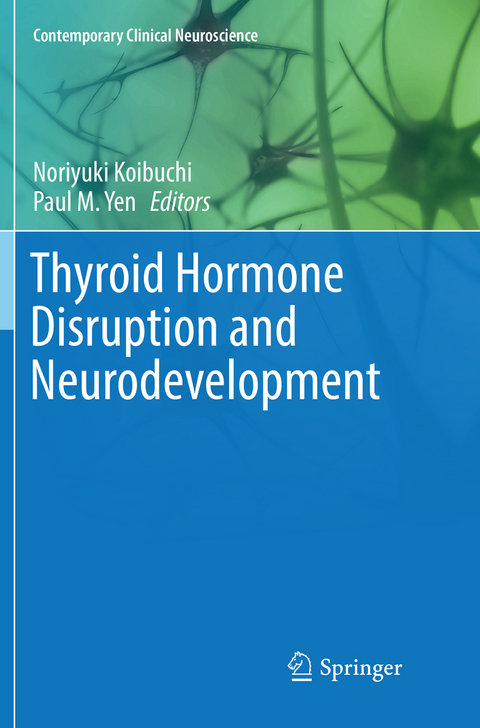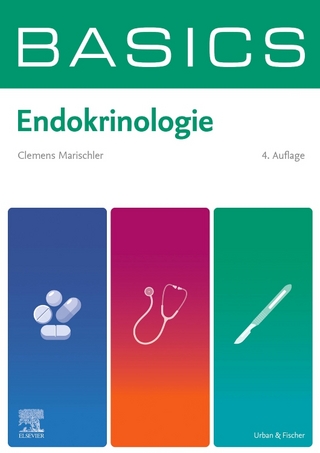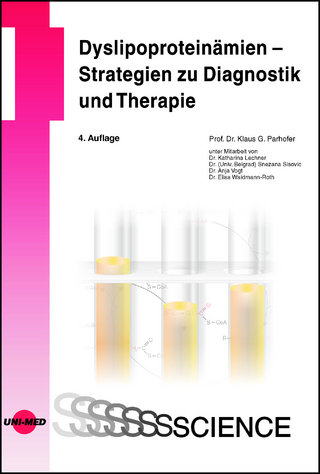
Thyroid Hormone Disruption and Neurodevelopment
Springer-Verlag New York Inc.
978-1-4939-8124-3 (ISBN)
Thyroid hormone plays an important role in development and functional maintenance in the central nervous system. Deficiency of thyroid hormone during fetal and early postnatal life induces abnormal development known as cretinism in humans. However, the molecular mechanism of thyroid hormone action has not yet been fully understood. Thyroid hormone action in the brain may be disrupted under various pathological conditions. In addition, environmental factors including endocrine-disrupting chemicals and bacterial endotoxins may disrupt thyroid hormone action in brain, causing abnormal brain development and functional disruption. This is a first book to comprehensively describe the effect of thyroid hormone disruption in the central nervous system. The first section deals with the disruption of thyroid hormone action at the molecular level. First the authors provide a summary of the possible molecular mechanisms of thyroid hormone action in the brain, then they discuss several factors that may disrupt thyroid hormone action. In the second section, animal models to study thyroid hormone action will be introduced. An interesting character of thyroid hormone deficiency is that, without thyroid hormone, the thyroid hormone receptor may act as a “repressor” of gene expression, causing more severe consequence than those of thyroid hormone receptor knockout animals. Thus, several different kind of animal models may be used to clarify the role of thyroid hormone and its receptor in the brain. In the third section, human studies on thyroid disease and neurodevelopment will be introduced. Although endemic cretinism induced by iodine deficiency and sporadic cretinism by various thyroid mutation are well known, the pathophysiological mechanisms that create each abnormal phenotype are not fully understood.
Dr. Noriyuki Koibuchi obtained his M.D. and Ph.D, at Gunma University, Japan. Then, he worked as a postdoctoral fellow in the Department of Neurobiology and Behavior at Rockefeller University. He then became the Assistant Professor of Physiology at Dokkyo University School of Medicine, Japan. Subsequently, he became a Visiting Assistant Professor of Medicine in the Division of Genetics at Brigham and Women’s Hospital and Harvard Medical School. Then, he was appointed to be a Professor and Director for the Department of Integrative Physiology at Gunma University Graduate School of Medicine. Dr. Koibuchi’s area of expertise and main interest concern the molecular mechanisms of thyroid hormone action in the central nervous system. He is a member of the Endocrine Society, Society for Neuroscience, and Society of Toxicology. Dr. Paul M. Yen received his M.D. from Johns Hopkins University and trained in internal medicine at University of Chicago. After a postdoctoral fellowship in endocrinology at NIH, he served on the faculty at Johns Hopkins and Harvard. He was also section chief at NIDDK and NIH before he joined Duke-NUS Graduate Medical School in Singapore as an Associate Professor. He is the Head of the Laboratory of Hormonal Regulation in the Cardiovascular and Metabolic Disorders Program; it is a lab that uses molecular, biological, and genomic approaches to study the hormonal regulation of transcription, particularly thyroid hormone (TH). His particular research interests include: hormonal regulation of hepatic autophagy and lipid metabolism in non-alcoholic fatty liver disease (NAFLD), as well as epigenetic regulation of metabolic genes by thyroid hormone.
Section 1: Disruption of thyroid hormone action at molecular level.- 1 Molecular mechanisms of thyroid hormone action in brain: a general overview.- 2 Deoidinases and brain development.- 3 Disruption of thyroid hormone receptor-mediated action in brain by endocrine disrupting chemicals.- 4 Chemical disruption of deiodinase activities during pregnancy and fetal neurotoxicity.- 5 Effect of maternal/neonatal infection on thyroid hormone-mediated neurodevelopment.- 6 Disruption of feedback regulation of thyroid hormone synthesis/secretion and brain development.- Section 2: Animal models to study thyroid hormone disruption on neurodevelopment.- 7 Animal models to study thyroid hormone action in neurodevelopment.- 8 Thyroid hormone receptor mutation and neurodevelopment.- 9 Pax6 knockout and cerebellar development.- 10 Disruption of auditory function by thyroid hormone receptor mutation.- Section 3 Thyroid hormone disruption and neurodevelopment: human studies.- 11 Maternal hypothyroidism and brain development of newborns.- 12 Congenital hypothyroidism and neurodevelopment.- 13 Iodine deficiency and brain development.- 14 Deficit in thyroid hormone transporters and brain development.- 15 Syndrome of resistance to thyroid hormone and brain development.
| Erscheinungsdatum | 16.08.2018 |
|---|---|
| Reihe/Serie | Contemporary Clinical Neuroscience |
| Zusatzinfo | 16 Illustrations, color; 6 Illustrations, black and white; VIII, 209 p. 22 illus., 16 illus. in color. |
| Verlagsort | New York |
| Sprache | englisch |
| Maße | 155 x 235 mm |
| Themenwelt | Medizinische Fachgebiete ► Innere Medizin ► Endokrinologie |
| Medizin / Pharmazie ► Medizinische Fachgebiete ► Neurologie | |
| Medizin / Pharmazie ► Studium | |
| Naturwissenschaften ► Biologie ► Humanbiologie | |
| Naturwissenschaften ► Biologie ► Zoologie | |
| Schlagworte | Brain Development • gene mutation • Hypothyroidism • iodine • thyroid hormone |
| ISBN-10 | 1-4939-8124-2 / 1493981242 |
| ISBN-13 | 978-1-4939-8124-3 / 9781493981243 |
| Zustand | Neuware |
| Haben Sie eine Frage zum Produkt? |
aus dem Bereich


